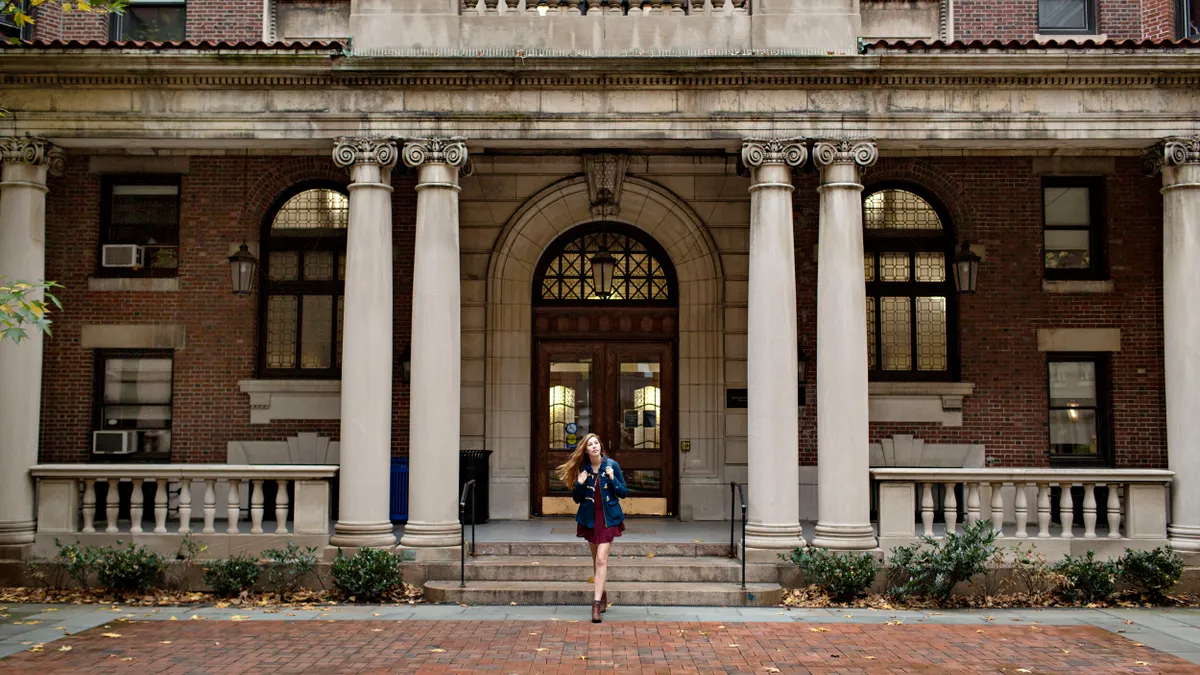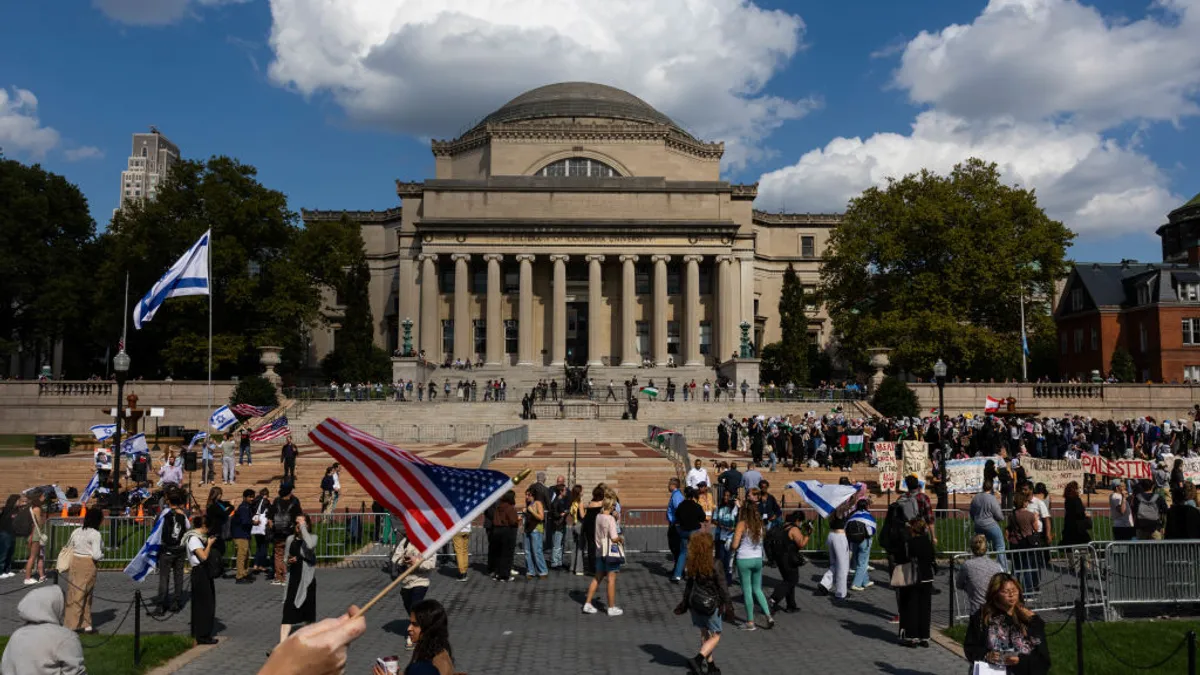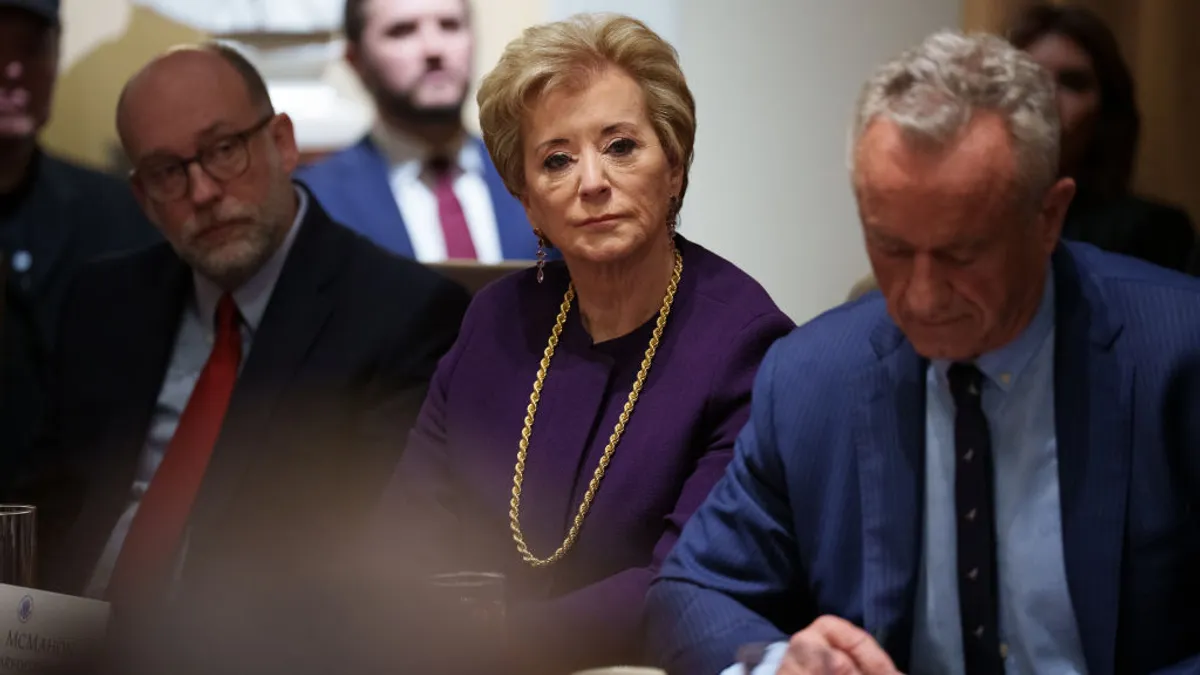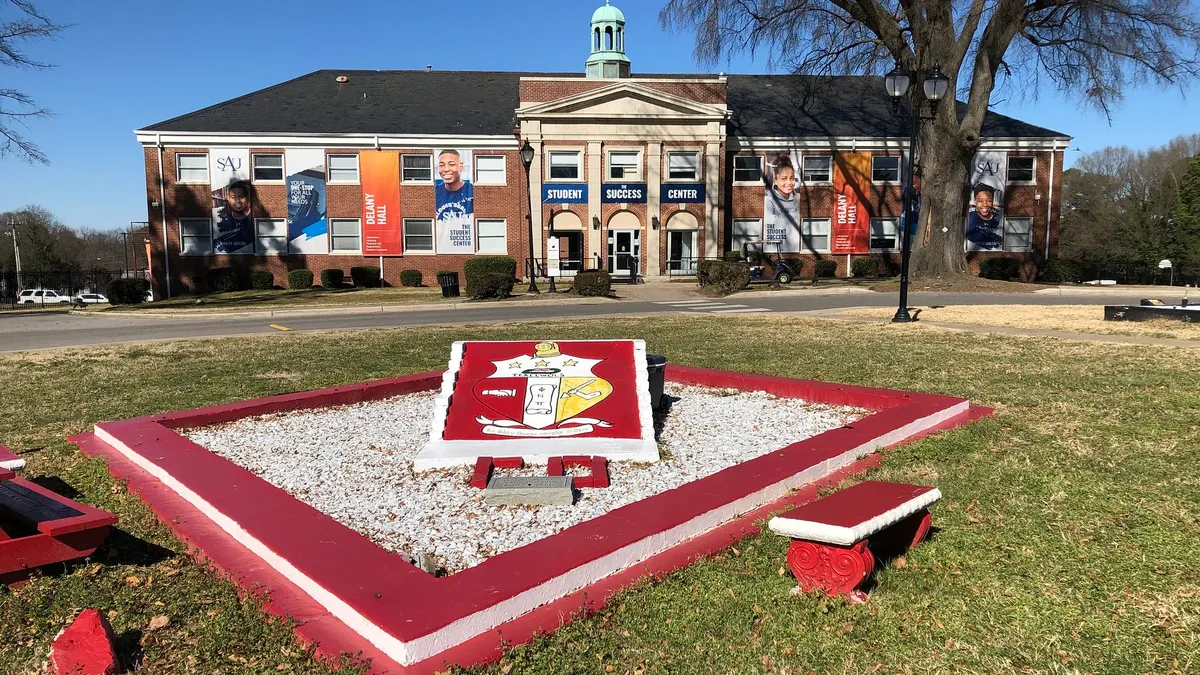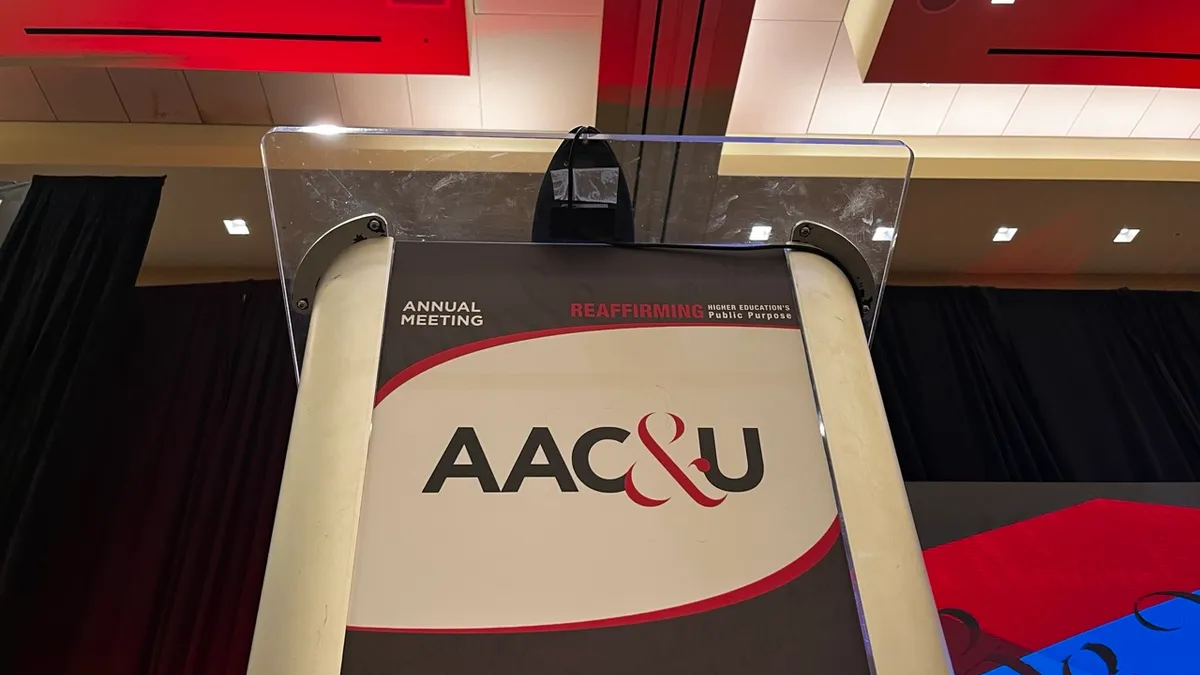Editor’s note: Sian Beilock is a cognitive scientist and the president of Barnard College at Columbia University.
Pandemic-fueled financial setbacks have hit women much harder than men, which should serve as a call to action for colleges and universities to do whatever it takes to provide the tools needed to close the financial fluency gap and work toward economic gender parity so our students can go out and change the world.
Though we're beginning to recover from what's been dubbed a "She-cession," the World Economic Forum's latest Global Gender Gap Report indicates that the COVID-19 pandemic has lengthened the timeline to reach gender parity across politics, education, health and economics by a generation — from 99.5 years to 135.6 years.
Since resigning ourselves to waiting for economic gender parity in the year 2288 isn't an option, higher education — which has a meaningful role to play in getting us back on track — is duty-bound to take action.
Surveys of respondents from the Netherlands have revealed that men tend to be better informed than women when it comes to concepts such as compound interest, inflation and risk diversification, but this only accounts for about two-thirds of the financial literacy story — the remainder boils down to women's lack of confidence in the knowledge they do possess.
So how can higher education leaders provide the next generation of working women with the training needed to reduce gender differences in income and financial outcomes?
At Barnard College we're taking a unique approach. We are need blind for first-year domestic applicants and meet the full demonstrated need of all enrolled students in order to minimize their financial burdens. We are also treating financial fluency as an integral part of students' educational experience.
This past academic year, we announced the creation of the Francine A. LeFrak Foundation Center for Well-Being. The center will support students' mental, physical and financial well-being, functioning as a centralized hub for the college's many wellness initiatives.
Studies have shown that a woman's understanding of money impacts her capacity to make strategic financial decisions. Because I strongly believe this shapes her future opportunities and ability to effect change in the world, we've taken a two-pronged approach to helping our students master money management.
First, we're enhancing our students' financial knowledge and confidence through programming on topics such as how to create budgets, read pay stubs, understand financial aid packages, calculate percentages that go into 401(k)s and assess investment rates of return.
Second, we're making certain that these offerings are front and center — virtually impossible to ignore — by housing them in a central location on campus as part of our Francine LeFrak Center, located on the first floor of Barnard Hall. That way, any student who visits Barnard Hall, — to use exercise equipment, learn about physical health and health education, explore therapy and counseling, or seek information about how to communicate needs and improve relationships — is also directly confronted with resources that support financial well-being.
Our 360-degree perspective on personal well-being incorporates and highlights the importance of financial well-being. If other colleges and universities embraced it, higher education could ensure women aren't left behind in the rebounding economy.
A McKinsey & Company analysis released in mid-2020 showed women were 1.8 times more likely to lose their jobs than men due to the pandemic during the crisis. Though women accounted for 39% of global employment, they experienced 54% of the overall job losses at the time of the report.
Some women left the workforce because they were fired. Many left "voluntarily" — if you can call it that — because there was no one else to oversee their children's remote schooling. When schools and child care centers shut down in the spring of 2020, about 5.1 million American mothers stopped working for pay, and, as of May 2021, about 1.3 million of them remain out of work, The New York Times reported.
The COVID-19 pandemic has unraveled much of the progress we've achieved over the last several decades to reduce gender inequality in the workplace. In order to regain all that was lost and protect our economies against future shocks, experts have asserted that governments worldwide must take concrete steps to reverse the She-cession.
While public policy catches up to current needs, though, we can and should be addressing the problem at the individual level.
Sticking to a budget, building savings, asking for raises at the appropriate time and investing wisely requires not only work and discipline, it also requires know-how and confidence, which too many undergraduate women and recent alumnae are lacking.
Moreover, this isn't an issue that's confined to arts and humanities majors.
Even female graduates in STEM majors are less confident in their abilities than their male counterparts, which, according to a study published last year, contributes to the gender pay gap in these fields.
And because we're not dealing with a level playing field for all women, special attention must be paid to those who are forced to overcome added hurdles and disadvantages.
At Barnard, we're prioritizing the needs of first-generation, low-income and international students by offering financial workshops that cover how to navigate a wide range of real-world situations, such as renting in New York City, developing a budget, investing money in the stock market and advocating for pay raises. And we're connecting our young women to these and other resources through one single point of access, called Access Barnard, that will provide additional support for their educational progress throughout their time with us.
We certainly have more to do, but I'm pleased to see initial evidence that the changes we've instituted are working. Across the last several years, 90% of our alums are in full-time jobs or grad school within six months of graduation. And those who've attended our financial literacy programs are telling us they're much more confident in their money management skills.
Financial setbacks related to COVID-19 have, no doubt, disproportionately affected women, but college and universities can help ensure they don't become permanent — provided they step up and begin closing the male-female financial-fluency gap.


